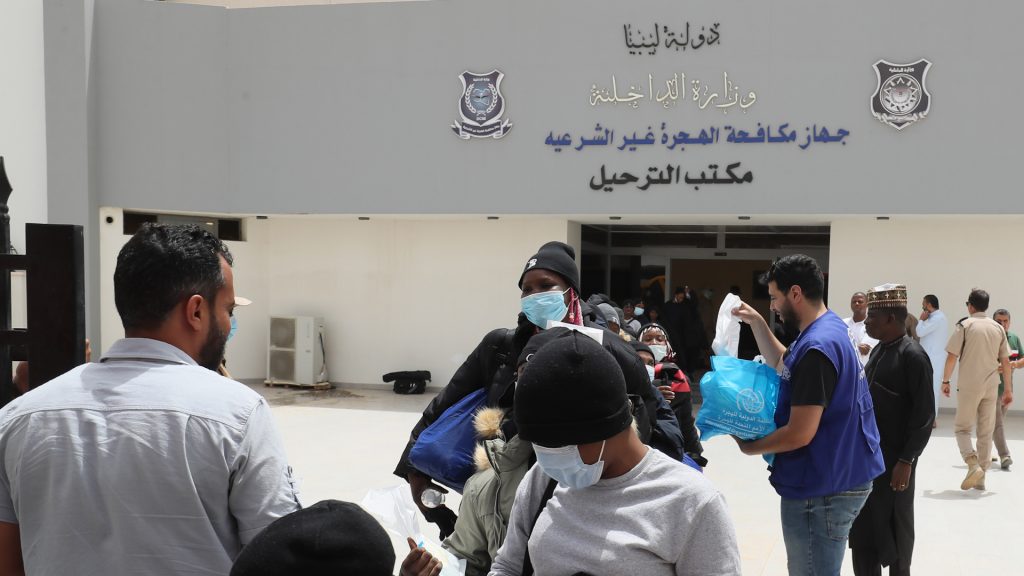Judge blocks plan to deport certain migrants to Libya, other countries

The Trump administration planned to deport migrants without legal status to Libya this week using U.S. military flights. However, a federal judge temporarily blocked the move after both Libya’s rival governments rejected the plan and immigration attorneys raised concerns about due process and safety.
U.S. District Judge Brian Murphy issued the order on Wednesday, May 7, stating that any such deportations would violate his existing court order that bars the government from removing individuals to countries where they may face persecution or torture without appropriate legal review.
The administration had argued that the earlier ruling applied only to the Department of Homeland Security. Still, Murphy ruled that it applies to any other agency, including the Department of Defense.
What were the legal and humanitarian concerns?
Immigration attorneys filed an emergency motion in federal court, arguing that officials deported some detainees without properly screening them for fear of harm in Libya. In at least one case, attorneys said Immigration and Customs Enforcement (ICE) officers allegedly forced detainees to sign deportation consent forms under duress.
Murphy’s ruling emphasized that bypassing legal protections would breach his earlier directive, guaranteeing migrants a chance to contest deportation decisions and receive adequate fear screenings.
How did Libya respond to the U.S. plan?
Libya’s two rival governments publicly rejected the proposed deportations. The Tripoli-based Government of National Unity said the U.S. did not coordinate the plan and declared it would not accept deported migrants. The Libyan National Army, which controls eastern Libya, issued a separate statement calling the deportation plan a violation of Libya’s sovereignty.
What risks do migrants face in Libya?
The U.S. State Department has long warned against travel to Libya, citing armed conflict, kidnapping, and “harsh and life-threatening prison conditions.” A 2023 United Nations report concluded that crimes against humanity — including arbitrary detention, torture, rape, and enforced disappearances — had likely been committed against migrants in Libya.
Lawyers for the plaintiffs argued that any deportees sent to Libya could face severe abuse or death in the country’s detention system.
What’s Trump’s broader deportation strategy?
The attempted Libya deportations are part of a broader push by the Trump administration to expand removal operations to more countries.
Earlier in 2025, the Trump administration asked Ukraine to accept deportees who were not Ukrainian citizens, according to documents reviewed by The Washington Post. The request came despite Ukraine’s ongoing war with Russia and its reliance on U.S. military and financial support. Ukrainian officials said the proposal never reached top leadership, and the country ultimately did not agree to take in the migrants.
What other countries have accepted noncitizen deportees?
Trump has pledged to deport millions of undocumented migrants and has struck deals with several countries, including El Salvador and Costa Rica, to accept deportees. Under a $6 million agreement, the U.S. sent deportees to El Salvador’s CECOT prison, drawing criticism from human rights groups.
Rwanda agreed to accept deportees as part of ongoing talks, according to The Washington Post. Independent outlet The Handbasket reported that Rwanda received $100,000 to take in one Iraqi national and committed to accepting 10 more from other countries.
Straight Arrow News has not independently confirmed the Handbasket’s report.
One U.S. official described Rwanda’s participation as part of its effort to align with the administration’s “America First” policy, the Post wrote.
Separately, the Department of Homeland Security said the U.S. deported 131 migrants to Uzbekistan in April under a new agreement. The group included nationals of Uzbekistan, Kazakhstan and Kyrgyzstan.
Secretary of State Marco Rubio recently said the U.S. is asking other governments to take in undesirable individuals, adding, “And the further away from America, the better.”





